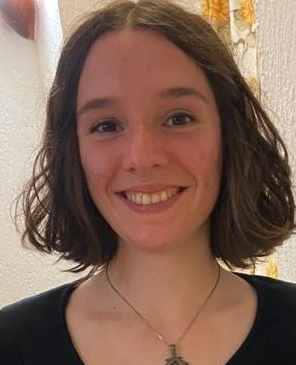Statutes
Preamble
The HBIGS is part of the Heidelberg University. Life sciences are the major research focus of the Heidelberg University, with scientists contributing from different faculties, including Biosciences, Medicine, Mathematics and Chemistry. The strong affiliation with the non-university research centers, the EMBL, the DKFZ and the MPI for Medical Research, further strengthens the overall research potential and capacity of life sciences at the Heidelberg University, creating a unique environment of excellence and proficiency. The Graduate School builds upon this strong and invigorating research environment and draws its members from the Faculties of Biosciences, Medicine, Mathematics and Chemistry and the affiliated research centers, the EMBL, the DKFZ and the MPI for Medical Research.
The Graduate School offers a PhD program that combines the benefits of a structured program with the strengths of the classical Alexander-von-Humboldt PhD training concept. This includes a strong orientation towards experimental research, promoting conceptional thinking, encouraging students to take personal responsibility, stimulation of individual creativity, and the freedom to advance through trial and error. The tutoring concept, the structured, interdisciplinary teaching program and the definition of learning goals and career development plans will help PhD students to reach their scientific and training objectives within a defined period of time.
By-laws of the Graduate School
HBIGS by-laws (.pdf; 52KB)
Structure of the Graduate School
The Graduate School adopts a modern management structure with flat hierarchies and a democratic participation of all parties involved, including PhD students. The bodies of the Graduate School are:
a) the General Assembly
b) the Executive Board
c) the Director/Dean of studies
d) the Student Assembly
e) the Scientific Advisory Board
The General Assembly
All members of the Graduate School and the three student representatives constitute the General Assembly of the Graduate School. The General Assembly will meet at least twice a year and will discuss all matters relevant to the Graduate School. It makes recommendations regarding future developments, teaching contents, structural changes, acceptance of new members and all other affairs of the Graduate School. The General Assembly elects, in secret ballots, the Dean of Studies and five additional members of the Executive Board. Mandates are for 3 years with the option of re-election. The General Assembly will recommend to the chair person of the Scientific Advisory Board new members of the Scientific Advisory Board, in case members need to be replaced.
The Executive Board
The Executive Board of the Graduate School consists of the Speakers and four elected members. The Executive Board represents the highest decision-making body of the Graduate School. All matters regarding students’ acceptance, project acceptance, composition of the Graduate School, and curricular and extramural activities are decided by the Executive Board. The Executive Board will oversee and direct the financial affairs of the Graduate School. The HBIGS faculty elects the members of the Executive Board.
Elected Members are:
Prof. Alexis Maizel (Speaker)
Prof. Friedrich Frischknecht (Speaker)
Dr. Ilka Bischofs
Prof. Andres Jäschke
Prof. Gislene Pereira
Prof. Nora Vögtle
In addition, the Dean of the Faculty of Biosciencs (Prof. Ruediger Hell) and the Dean of Graduate studies (Prof. Michael Lanzer) are members of the Executive Board.
Former Executive Board members are:
Prof. Michael Knop (Oct 2019 - Nov 2022)
Prof. Michael Boutros (Oct 2007 - Nov 2022)
Prof. Jochen Wittbrodt (Oct 2007 - Feb 2022)
Prof. Michael Lanzer (Oct 2007 - Dec 2018)
Prof. Walter Nickel (Jun 2015 - Dec 2018)
Prof. Elmar Schiebel (Oct 2007 - Jun 2015)
Prof. Rüdiger Hell (Oct 2010 - Jun 2015)
Prof. Thomas Rausch (Oct 2007 - Oct 2010)
Prof. Ilme Schlichting (Oct 2007 - Oct 2012)
The Speaker
The Speaker presides the Executive Board meetings. They are responsible for managing the day-to-day activities of the Graduate School.
The Scientific Advisory Board
The Scientific Advisory Board consists of seven scientists who are well known in the field of molecular and cellular biology and have extensive teaching experience. The Scientific Advisory Board evaluates the Graduate School as a whole and makes written recommendations on how to improve the performance of the program. The following internationally renowned senior scientists serve on the Scientific Advisory Board:
Prof. Iain Hagan (The Paterson Institute for Cancer Research, Manchester)
Prof. Peter Preiser (Nanyang Technological University, Singapore)
Prof. Anne Spang (Biozentrum, University of Basel)
Prof. Jean Langhorne (MRC, National Institute for Medical Research, London)
Prof. Valerie Doye (Institut Jaques Monod, Paris)
The Student Assembly
All students of the Graduate School constitute the Student Assembly. The Student Assembly elects the speaker of the graduate students and the vice speakers. Speaker and vice speakers are elected for one year. The speaker chairs the Student Assembly, which convenes once a year to discuss matters relevant to the students and organize the annual meeting of the Graduate School.
Elected HBIGS PhD student speakers are:
Pablo Gonzalez Jabalera
(Vice Speaker)
Soria Gasparini
(Vice Speaker)
Former Student speakers
2023-2024:
Andreas Hecker (Speaker)
2021-2023:
Bianca Balzasch (Speaker)
Violeta Pancakova
Amel Zulji
2019-2021/22:
Usama Dabbas (Speaker 2019-21)
Lukas Frese
Romina Celada (Speaker 2021-22)
2017-2019:
Nicole Mertes (Speaker)
Janathan Juarez
Sara Khouaja
2015-2017:
Ceren Duman (Speaker)
Robin Burk
Ali Ghanem
2013-2015:
Ioana Goganau (Speaker)
Kathrin Tegeler
Sebastian Unger
2011-2013:
Julianne McCall (Speaker)
Patrick Pelzer
Julian Kellner
2009-2011:
Stefan Mockenhaupt (Speaker)
Silke Wagenhäuser (Speaker)
Julia Stefanski
Hannes Otto
2008-2009:
Arne Bartol (Speaker)
Özgur Tataroglu
Andrea Jansen
 Bodies of the Graduate School and their interactions
Bodies of the Graduate School and their interactions









